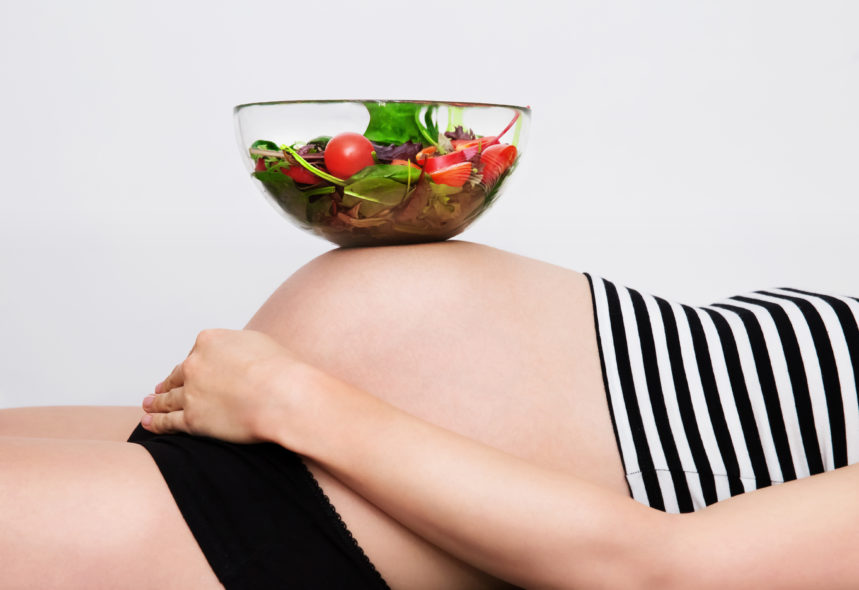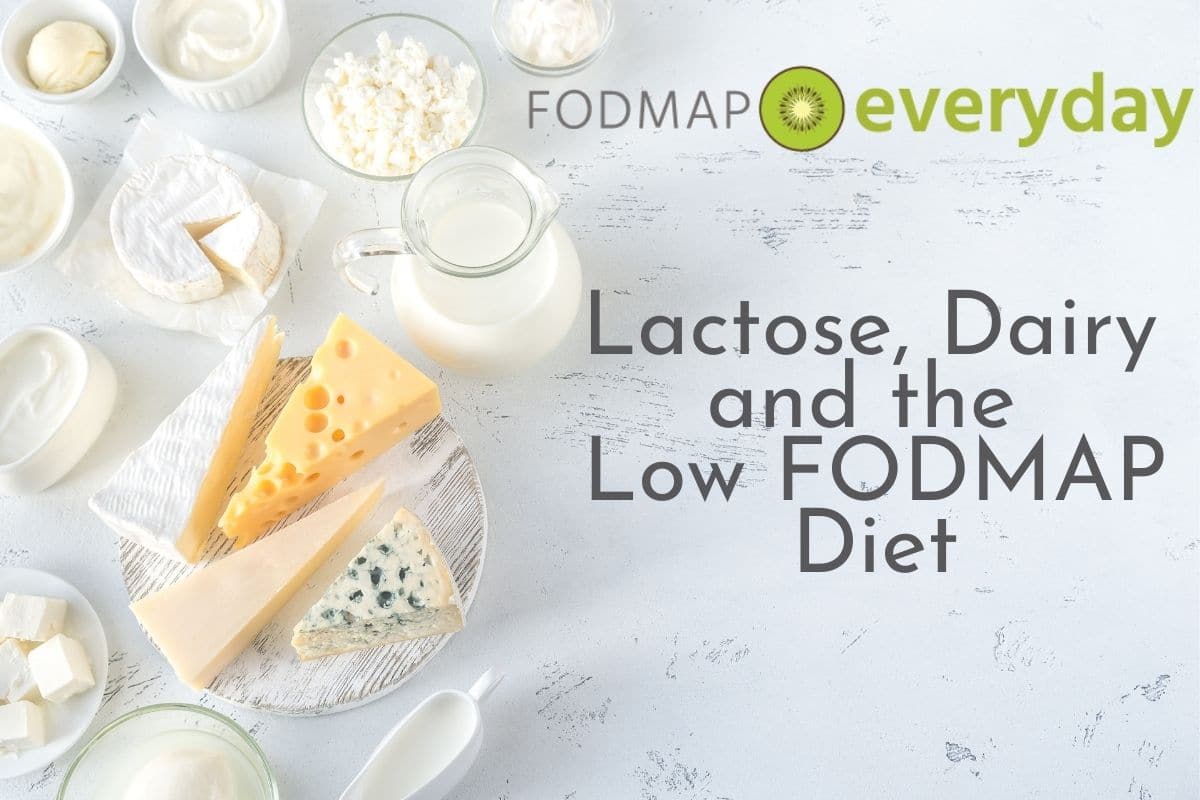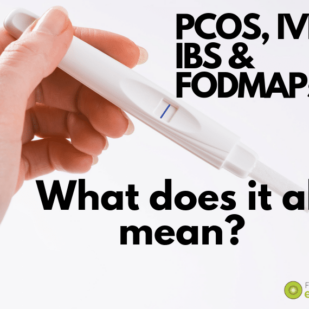Digestive issues are common side effects of pregnancy, including nausea, vomiting, heartburn and constipation.
Some women with Irritable Bowel Syndrome (IBS) prior to pregnancy may find their symptoms change, for better or worse, during pregnancy, however, because of increased nutrient needs it is not recommended to start a low-FODMAP elimination diet during pregnancy.
The information in this article may be most useful to women who were following a modified FODMAP diet prior to becoming pregnant. In addition, consulting a Registered Dietitian during pregnancy can help you address your digestive issues safely.
You might also be interested in Rachelle’s article on Postpartum Nutritional Needs, PCOS, IVF, IBS & FODMAPs, Morning Sickness and Breastfeeding while on the low FODMAP diet.

IBS During Pregnancy: Might Get Better or Worse
For IBS with diarrhea, symptoms may improve during pregnancy. For this reason, moderate to high-FODMAP foods may be able to be introduced to the diet. Conversely, for IBS with constipation, symptoms may be exacerbated during pregnancy.
Constipation is a common side effect of pregnancy, affecting 11 to 38% of women*. Iron in prenatal vitamins can contribute to constipation, and the GI system overall slows down due to the hormone progesterone.
This is why diarrhea may be alleviated, but constipation may worsen.
Here are a few tips to deal with constipation during pregnancy.:
- Increase fluid intake, especially water
- Eat more high-fiber low-FODMAP foods, such as zucchini, canned lentils, and peanuts
- Get regular physical activity

READ: The Scoop on Increasing Your Ability to Poop: Strategies for Alleviating Constipation
Food cravings and aversions are also common during pregnancy.
Interestingly, pregnancy-related cravings can result in IBS-like symptoms. During my pregnancy, I craved potatoes (in any form!) and romaine lettuce, which are both low-FODMAP.
But if you’re craving sweet potatoes or avocado and you increase intake from a low-FODMAP portion to a bigger serving, you may end up consuming an excess of FODMAPs, which could trigger symptoms. Or you might crave ice cream, which has lactose.
While it is not advised to follow the Elimination phase of the low FODMAP diet when you’re pregnant, you may want to consider limiting foods that trigger gastrointestinal discomfort.
Smoothie Sailing
Smoothies are also an easy way to get those extra calories needed during your second and third trimester. My Raspberry Smoothie is high in fiber, low in FODMAPs, and features foods that provide important pregnancy nutrients, including folate, iron and calcium.
As stated above, the low FODMAP elimination diet should not be initiated during pregnancy. Monash University, where researchers developed the low FODMAP diet and continue to research this area, has not conducted studies using this diet in pregnant women.
You might also be interested in Rachelle’s article on Postpartum Nutritional Needs, PCOS, IVF, IBS & FODMAPs, Morning Sickness and Breastfeeding while on the low FODMAP diet.
Sources
- EatRightPro
- Monash University








